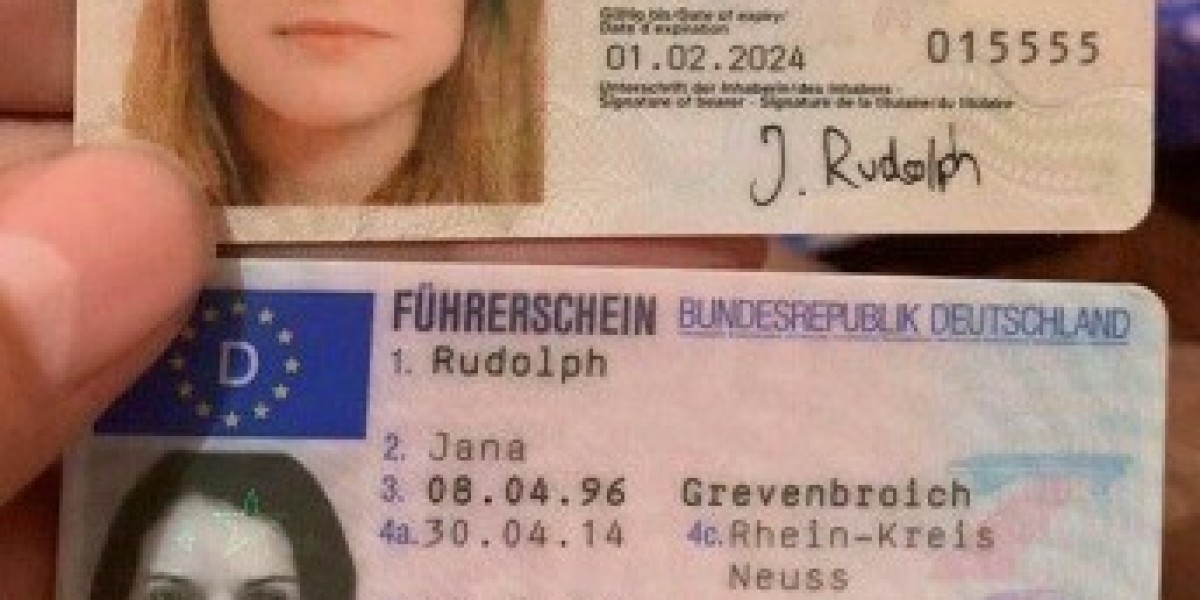
Navigating the Autobahn and Beyond: Understanding the German Driving License Experience
The appeal of Germany frequently extends beyond its rich history, dynamic culture, and spectacular landscapes. For lots of, the possibility of driving on the renowned Autobahn, a network renowned for its sections without mandatory speed limits, is a substantial draw. However, before one can experience the adventure behind the wheel in Germany, obtaining a German driving license is a necessary and, often perceived, challenging undertaking. This post explores the experiences related to acquiring a German driving license, using a helpful guide to the process, potential hurdles, and valuable insights for anybody thinking about starting this journey.
A German driving license is more than simply a paper enabling legal operation of a vehicle; it's a testimony to a driver's proficiency and adherence to rigid German roadway security requirements. The process is created to be extensive, guaranteeing drivers are not only experienced about traffic laws but also have the practical skills and responsible mindset required to navigate German roadways securely. While the reputation of the German driving test as extensive is well-earned, understanding the procedure and being prepared can make the experience less difficult and eventually successful.
The Road to a German Driving License: A Step-by-Step Journey
Acquiring a German driving license is a structured procedure, generally including a number of key phases. While specific experiences can differ based on individual situations and driving schools, the general course remains constant.
Here's a breakdown of the basic steps:
Enrolling in a Driving School (Fahrschule): This is the first and essential step. Picking the best driving school is essential as they will guide you through the whole process. Driving schools in Germany are controlled and use structured training programs adhering to national standards. Enrollment typically includes registration and getting initial information about the course structure, expenses, and required documents.
Eye Test (Sehtest): Before commencing official training, an eye test is compulsory to ensure you fulfill the minimum vision requirements for driving. This test can be done at an optician or an ophthalmologist. A certificate of your effective eye test is a needed file for your application.
Emergency Treatment Course (Erste-Hilfe-Kurs): Demonstrating knowledge of first aid is a prerequisite for obtaining a German driving license. You will require to finish a recognized emergency treatment course, generally lasting a day. These courses are widely offered and cover necessary very first help procedures appropriate to roadway accidents and basic emergencies.
Theory Lessons (Theorieunterricht): German driving theory is comprehensive and thorough. Driving schools offer mandatory theory lessons, covering everything from traffic laws and guidelines, road signs, and right of way guidelines to vehicle innovation, ecological considerations, and protective driving techniques. These lessons are often interactive and developed to prepare students for the theoretical examination.
Theory Exam (Theorieprüfung): Once the theory lessons are completed, you can apply to take the official theory exam. This computer-based exam tests your understanding of German driving laws and guidelines. It involves multiple-choice questions and video-based circumstances. Passing the theory exam is a prerequisite for starting practical driving lessons. Many prospective drivers find the theory exam challenging due to the large volume of info and the need to understand nuanced German traffic rules. Language can likewise be a significant barrier for non-native speakers.
Practical Driving Lessons (Fahrstunden): After passing the theory exam, the practical driving lessons start. The variety of lessons needed varies significantly depending on private aptitude, prior driving experience (if any), and the driving instructor's evaluation of progress. German driving trainers are highly trained and focus not only on basic car control however also on safe, accountable, and anticipatory driving. Lessons cover a wide variety of driving circumstances, consisting of city driving, Autobahn driving, rural roadways, night driving (often compulsory), and emergency situation maneuvers. These lessons are carried out in driving school automobiles equipped with double controls.
Practical Exam (Praktische Prüfung): The practical driving exam is the final obstacle. It is carried out by a main inspector from the TÜV (Technischer Überwachungsverein) or DEKRA (Deutscher Kraftfahrzeug-Überwachungs-Verein), independent testing companies. The exam normally lasts around 45-60 minutes and evaluates a driver's capability to securely and effectively operate a vehicle in real-world traffic conditions. Examiners carefully assess driving abilities, adherence to traffic guidelines, observation skills, and overall driving habits. The German useful exam is understood for its thoroughness and can be viewed as requiring. It is not uncommon for candidates to need multiple attempts to pass.
Browsing the Bumps in the Road: Common Experiences and Challenges
While the procedure is structured, people frequently come across particular difficulties and have distinct experiences throughout their journey to acquire a German driving license.
Language Barrier: For non-German speakers, the language barrier can be a significant obstacle, particularly for the theory exam. While some driving schools provide lessons and products in English or other languages, the main theory exam and useful exam are typically carried out in German. Comprehending complicated German traffic guidelines and terms can be requiring, needing extra effort and language assistance.
Strictness of the System: The German driving license system is known for its rigor and high standards. Both the theory and practical examinations are developed to be tough, reflecting the focus on roadway security in Germany. This strictness can be at first daunting for some, particularly if they are utilized to less rigid licensing procedures in their home countries.
Expense: Obtaining a German driving license can be expensive. Costs include driving school enrollment charges, theory and practical lesson fees (which are frequently charged per lesson), eye test, very first aid course, theory and useful exam charges, and application charges. The total expense can differ based upon the number of practical lessons needed, which in turn depends on individual learning speed and previous experience.
Thoroughness of Practical Exam: The practical exam is carefully detailed, and examiners are trained to observe a large range of driving habits. Even small errors can lead to failure if they are deemed to jeopardize security or indicate a lack of competence. This thoroughness can produce pressure and stress and anxiety for prospects.
Discovering a Suitable Driving School and Instructor: The relationship with the driving instructor is crucial for success. Discovering a driving school and instructor that match specific learning styles and needs is necessary. Factors like trainer's teaching style, interaction abilities, and availability can considerably impact the learning experience.
Waiting Times: Depending on the region and driving school, waiting times for theory and practical tests can sometimes be longer than wanted. This can add to the overall duration of the procedure.
Tips for a Smoother Ride: Strategies for Success
While difficulties exist, effective acquisition of a German driving license is achievable with preparation and the right technique.
Here are some tips to improve the experience and increase the chances of success:
Start Early and Plan Ahead: Begin the procedure well in advance of when you actually need the license. This permits sufficient time for knowing, practicing, and handling prospective hold-ups.
Choose a Reputable Driving School: Research and choose a well-regarded driving school with knowledgeable trainers and a good reputation. Seek recommendations and read evaluations from other students.
Diligent Theory Preparation: Devote adequate time to studying the theory product. Utilize finding out apps, practice tests, and other resources to strengthen your understanding of German traffic laws. For non-native speakers, consider language support resources particularly designed for driving theory.
Be Proactive in Practical Lessons: Actively engage in useful lessons. Ask questions, look for feedback, and practice identified areas of weakness. Don't hesitate to request additional lessons if you feel you require more practice.
Address Language Barriers Head-On: If language is a concern, think about driving schools that offer assistance for non-native speakers, explore translation tools for theory products, and potentially look for language tutoring focused on driving-related vocabulary.
Practice, Practice, Practice: Supplement driving school lessons with extra practice if possible, even if it's just practicing maneuvers in a safe, regulated environment (with appropriate guidance and approvals if not a private area). The more comfy and confident you lag the wheel, the much better you will perform in the exam.
Mock Exams and Practice Tests: Utilize mock theory and practical exams to acquaint yourself with the exam format, recognize locations for improvement, and decrease exam stress and anxiety.
Do not Be Discouraged by Failure: It is not uncommon to fail the useful exam on the first attempt in Germany. Do not let this discourage you. Evaluate the inspector's feedback, resolve the determined weaknesses, and attempt again. Persistence is essential.
Foreign License Conversion: An Alternative Route
For some individuals holding driving licenses from other nations, there may be the possibility of transforming their existing license to a German one without undergoing the complete German driving license procedure. This depends on reciprocal agreements between Germany and the providing nation. Nevertheless, even with mutual agreements, a dry run or extra training may still be required. It's vital to inspect the particular guidelines based on your country of origin and the class of license you hold. If conversion is not possible, or if the foreign license is not recognized, obtaining a full German driving license through the basic process is essential.
Conclusion: The Value of a German Driving License
Acquiring a German driving license is unquestionably a thorough and in some cases difficult process. Nevertheless, the rigor of the system guarantees that license holders are proficient and safe drivers, contributing to Germany's reputation for roadway safety. The experiences encountered throughout the process, from mastering intricate traffic laws to browsing demanding useful tests, ultimately equip drivers with the abilities and understanding required to with confidence and responsibly browse German roads and beyond. While it might require effort, commitment, and potentially a few attempts, the reward of holding a German driving license, with its credibility and recognition, is well worth the journey. It opens doors to checking out Germany and Europe on 4 wheels, providing flexibility and self-reliance in a region understood for its outstanding roadway infrastructure and driving culture.
Often Asked Questions (FAQs) about Getting a German Driving License
Q: How long does it take to get a German driving license?
A: The period differs considerably depending upon private learning speed, previous experience, and the schedule of driving school visits and exam slots. It can range from a couple of months to over a year. Factors like language proficiency and the variety of useful lessons needed likewise contribute.
Q: How much does it cost to get a German driving license?
A: Costs vary considerably. Spending plan anywhere from EUR2,000 to EUR3,führerschein kaufen für 500 euro or perhaps more. Costs depend upon the driving school, the number of practical lessons needed, exam costs, and other associated expenses. It's a good idea to get cost quotes from numerous driving schools.
Q: Can I take the theory and useful examinations in English?
A: Generally, the official theory and practical examinations are conducted in German. While some driving schools may provide theory lessons and products in English, the official exams are usually in German. It's vital to validate with the driving school and authorities about language options.
Q: How lots of theory and practical lessons are compulsory?
A: There is no lawfully mandated minimum variety of useful driving lessons. Nevertheless, compulsory theory lessons should be completed. The number of practical lessons required depends on specific aptitude and the driving trainer's evaluation of development. A particular number of special driving lessons (e.g., Autobahn, night driving) are typically necessary.
Q: What occurs if I stop working the theory or practical exam?
A: If you stop working either the theory or useful exam, you can retake it. There is typically a waiting period before you can attempt the exam once again. There are likewise restricts to how numerous times you can fail before needing to re-enroll in driving school or dealing with additional restrictions.
Q: Can I use my foreign driving license in Germany?
A: Whether you can utilize your foreign driving license in Germany and for for how long depends on your country of origin and the kind of license. Licenses from EU and EEA nations are generally acknowledged. For licenses from non-EU/EEA countries, there might be a limited validity duration or the need for conversion or a German driving license. It's important to check the particular policies based upon your specific situations.
Q: Do I need to own a car to get a German driving license?
A: No, you do not need to own a car. Driving lessons and practical examinations are conducted in driving school automobiles.
Q: Is it possible to transfer my foreign driving license to a German one?
A: Yes, sometimes, it is possible to transfer a foreign driving license to a German one, depending upon mutual agreements between Germany and the issuing nation. The process and requirements vary. Contact the regional driving license authority (Führerscheinstelle) for specific information.

Q: What kinds of vehicles can I drive with a German Class B driving license (standard car license)?
A: A Class B driving license permits you to drive guest cars (approximately 3.5 lots of maximum licensed mass) with as much as 8 guest seats plus the driver's seat. It also includes trailers up to a particular weight. For bigger automobiles or other categories, extra driving license classes are required.










